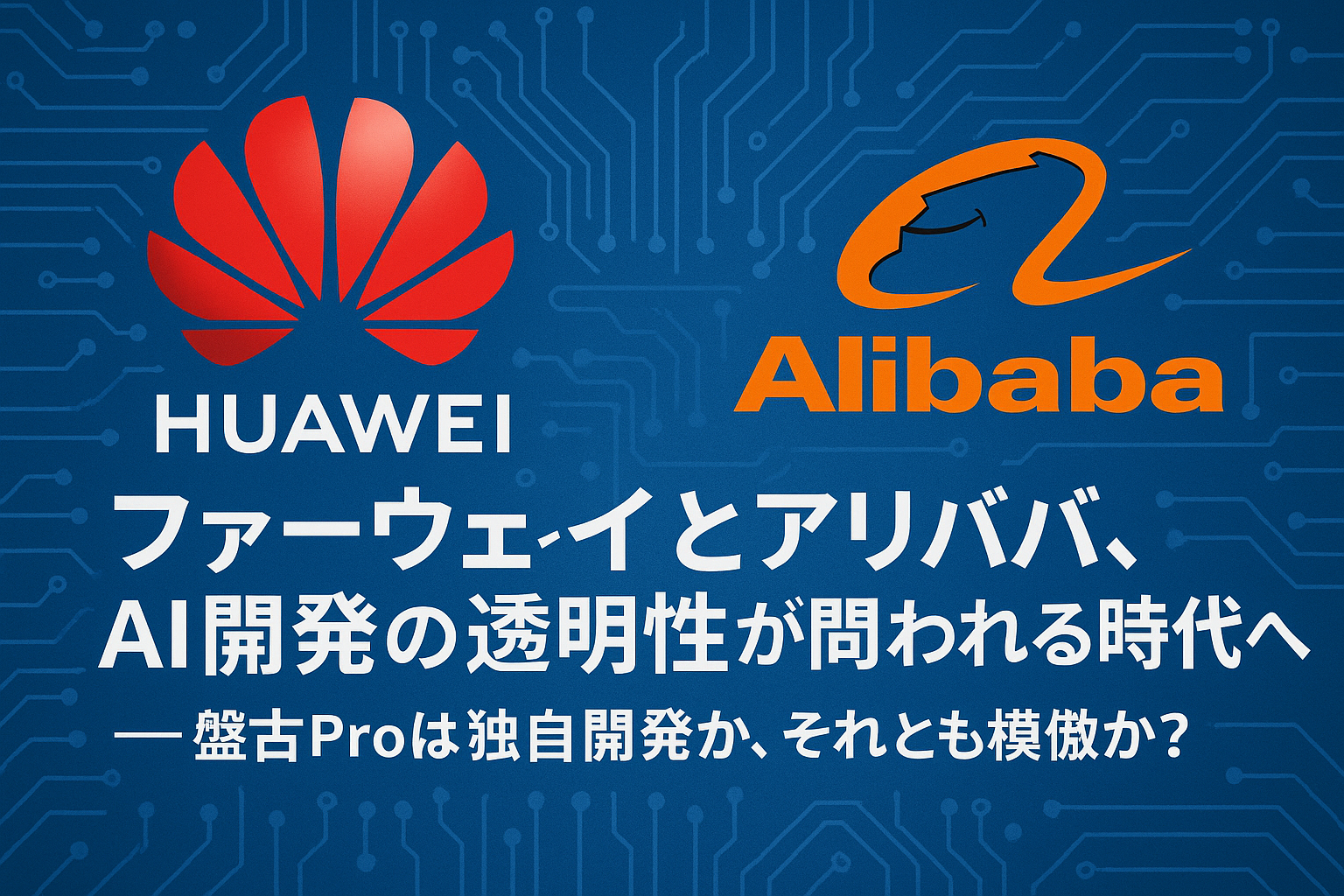— Is Pangu Pro Truly Original, or a Copy?
As the global AI development race intensifies since 2024, Chinese companies have been rapidly gaining prominence. Amid this trend, Huawei’s large language model (LLM), Pangu Pro, has come under suspicion for allegedly imitating Qwen, developed by Alibaba. This has once again drawn attention to the issue of trustworthiness in the field of AI.
Allegations of Imitation and Huawei’s Rebuttal
The controversy began when a group calling itself “Honest AGI” posted on GitHub, pointing out an “abnormally high correlation” between Huawei’s Pangu Pro MoE and Alibaba’s Qwen2.5-14B. They claimed that the behavior and structure of the two models were strikingly similar, suggesting the possibility that Huawei’s model was upcycled—a reused version of an existing model—raising questions about potential copyright infringement and the credibility of Huawei’s development process.
In response, Huawei’s AI research division, Noah’s Ark Lab, strongly denied the claims, stating that Pangu Pro was “designed in-house and not based on Qwen.” They further emphasized that the model is the first LLM to run on Huawei’s own Ascend chips, and asserted that the development strictly adheres to open-source licensing terms.
The Invisible Wall of Technical Verification
A key issue here is the extreme difficulty in objectively proving whether an AI model was genuinely developed from scratch. Given the black-box nature of many AI systems, similarities in structure or output can often be dismissed as mere coincidence.
Furthermore, in today’s open-source era, there is more room to legally utilize others’ code, making the boundary between imitation and inspiration increasingly ambiguous. This is not an issue limited to China; developers worldwide face similar challenges.
The Transparency Barrier Confronting Huawei
Huawei has been involved in AI development since relatively early on, unveiling the first version of Pangu in 2021. However, the company was perceived to be slightly lagging behind Alibaba and Baidu in terms of development pace. Pangu Pro was intended to help regain momentum.
Regardless of whether the imitation allegations are true, the industry is now shifting from a phase focused solely on performance competition to one where the transparency of the development process becomes paramount. For Huawei—especially as it promotes “domestically developed AI” supported by the government and its own hardware—transparency may directly impact its brand value.
Trust in AI Must Be Built on Technical Strength and Ethical Development
While accuracy and performance remain critical metrics for AI, a new era demands trust in the invisible aspects—how models are developed, and what data they are trained on.
The actions of Huawei and Alibaba, two of China’s AI giants, hold considerable sway not only within China but also across the global AI ecosystem. Whether it’s imitation or innovation may be hard to judge from the outside, but one thing is clear: a company’s attitude and commitment to transparency will play a decisive role in building or losing trust.

